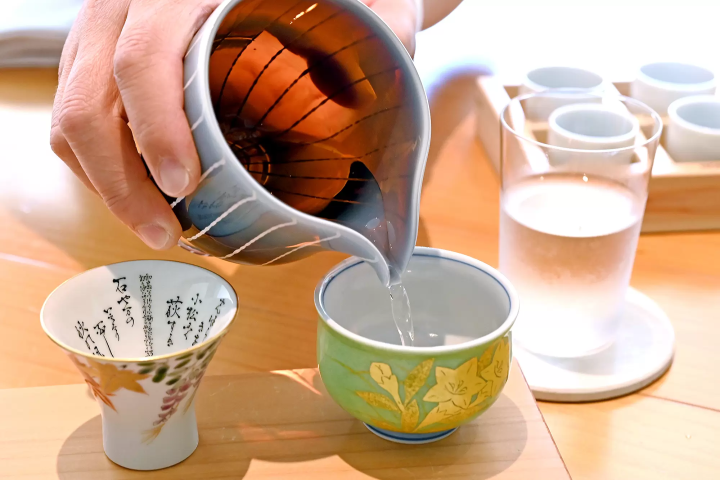Double the Happiness – Ryokan Niko in Western Tokyo

Ryokan Niko is a traditional Japanese inn, located in a quiet residential area that is easy to access by train from Shinjuku Station. It's an excellent place to enjoy warm hospitality in beautiful Japanese-style rooms.
Welcome back to Tokyo Ryokan Stories! I’m Roza Akino, and I live and work in Japan. Thanks for joining me on my journey to explore the lesser-known inns and hotels in Tokyo!
On this day, I am off to Ryokan Niko, a traditional Japanese inn, located outside the 23 special wards of Tokyo. This ryokan is close to a station called Musashi Koganei, 28 minutes by train from Shinjuku Station on the Chuo Line.
The 7-minute walk from the station takes me away from the hustle and bustle of the station to a residential area, peaceful and quiet. I wonder about the choice of the location for the ryokan—what prompted the owner to pick an area that is seemingly distant from tourist or business destinations?
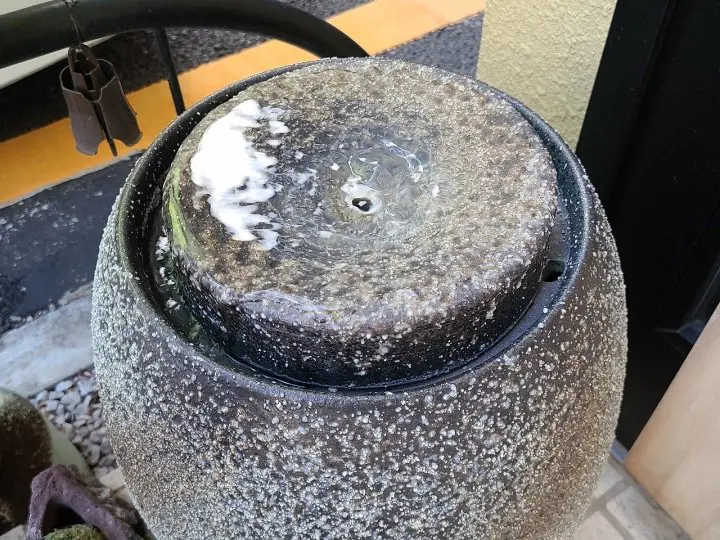
A stone basin fountain decorates the entrance of the ryokan
After a few minutes, I arrive at the ryokan. The red umbrella, often used at tea gatherings, and traditional clay roof tiles stand out against the surrounding residential homes. A green noren to the right side of the entrance displays the ryokan’s logo, while the characters 旅館二幸 (the ryokan’s name in Japanese) are carved into a wooden sign to the left. Approaching the entrance, I notice a stone basin fountain, the sound of running water echoing through its chambers producing a relaxing effect.

A porcelain tiger named “Jupiter” greets guests in the entryway
As I enter the ryokan, I am greeted by Tsuneo Shimura-san and his wife, Eiko-san. The genkan entrance displays a cross section of a giant tree behind its welcome sign, guarded by a porcelain tiger with the nametag “Jupiter.” I join the Shimuras in Café Niko, a café that they run during lunchtime on the first floor of the ryokan.

Inside Café Niko
The white lighting fixtures, skylight, and wooden furniture provide a spacious environment with a natural feel, while the analog record player to the side of the room adds another layer to take you away from the hectic life of modern times. The wall displays a Beatles record sleeve, among several others.
Ryokan Niko was started by Shimura-san’s mother in 1953, when Shimura-san was still in elementary school. The area is home to Tokyo Gakugei University, and during the war this university was used by the military as a research center. Until Shimura-san’s grandfather purchased it to use as his residence after the war, the property was one of the large mansions owned by the military personnel working at that center.
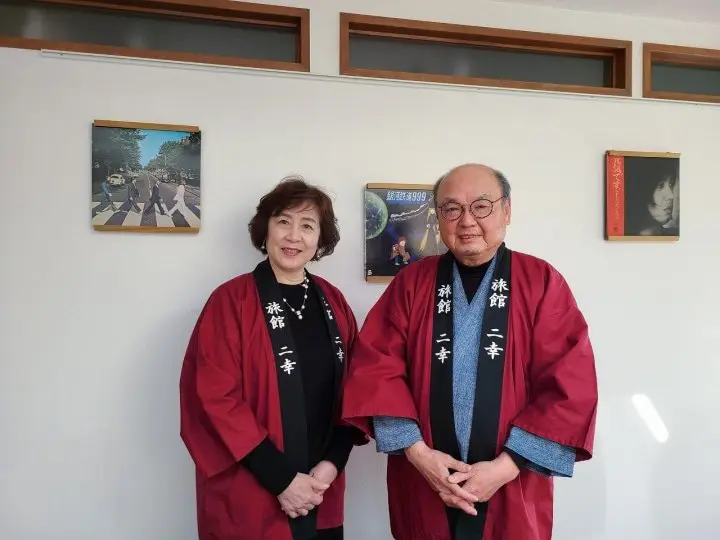
The Shimuras, wearing their Ryokan Niko happi coats
Shimura-san’s grandfather, who at the time worked as a member of the Board of Directors of a newspaper company, decided that it was a waste not to use the large property with many rooms to its full potential, and suggested that Shimura-san’s mother start a ryokan there.
The name of the ryokan, “二幸” (niko), comes from a combination of Shimura-san’s father’s and grandfather’s names, both of which have 幸 (ko – the character for happiness) in them. Ryokan Niko combined the two to form 二幸 (two 幸). Since the character also means “happiness”, the naming of double happiness is also an auspicious one.
Shimura-san himself took over the ryokan only 6-7 years ago, after he retired—until then, it was run by his mother and Eiko-san. When the ryokan first opened, it didn’t have anything special in the surrounding area to bring foot-traffic, and even residential houses were few and far in between. What it did have was space—plenty of it, as the original size of the property was much bigger than it is now. Because of its location, the ryokan was often used by university students as a boarding house for long-term stays, as well as high school students applying to their university for the duration of their entrance exams. The area was also not too far from an American base, and soldiers stationed there would often use the ryokan to hold their banquets.
The area has gone through many changes, but the ryokan is still a favorite among students taking their entrance exams for various trade schools that have popped up in the area over the years. Its 7 rooms also offer an excellent choice for relatives coming from afar for family gatherings such as weddings or funerals.
With the onset of the pandemic, guests from outside the area have decreased drastically, inspiring the Shimuras to open Café Niko as a way to give the locals a place to take a break from their everyday routine.
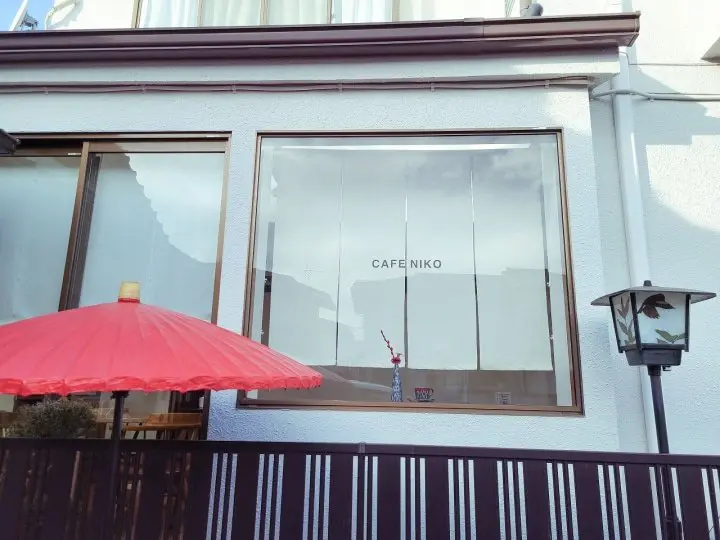
Café Niko is open from 11am to 3pm every day except for Monday. Here, you can come in for a quick lunch, or even just have a cup of coffee and relax with a vintage record playing in the background. The café can also be rented out for private use, great for events and small gatherings.
Although it’s a little bit of a trip from central Tokyo, its location makes Ryokan Niko the perfect lodging for someone who is on their second or third trip to Japan and has seen enough of the city, or for someone who’s goal is to see areas outside the popular tourist destinations, west of Tokyo. Places like the famous Ghibli Museum in Mitaka (approximately 30 minutes door-to-door), Inokashira Park (approximately 25 minutes door-to-door), the Edo-Tokyo Open Air Architectual Museum (a 20-minute walk), and Sanrio Pureland are much more convenient to access from here. Ryokan Niko is also located right between central Tokyo and Takaosan (Mount Takao), perfect for those who love hiking.
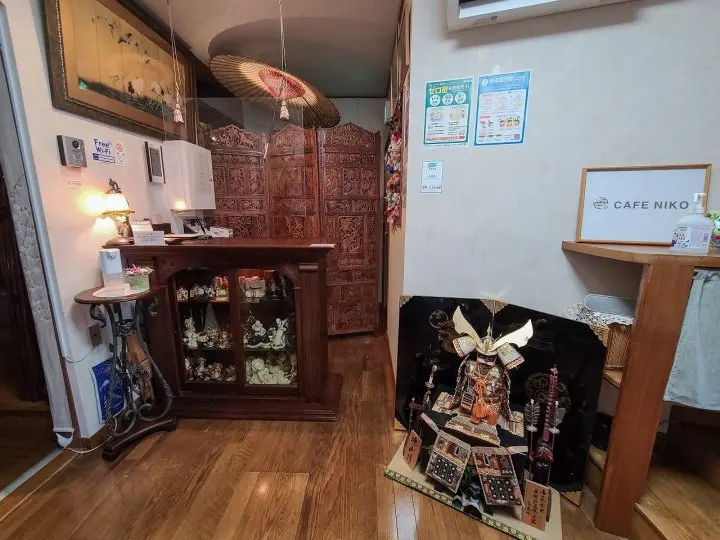
The front desk—the floors are routinely polished by Shimura-san
As Shimura-san leads me into the hallway to show me the rooms, I notice the shiny smoothly-polished hardwood floor. Eiko-san mentions that her husband is the one that does all the maintenance on the ryokan, while Eiko-san picks the designs for the rooms and arranges the fresh flowers. They are such an adorable pair, the kind that finish each-other’s sentences, and I can see why the guests that come here would feel like they are visiting their relatives.
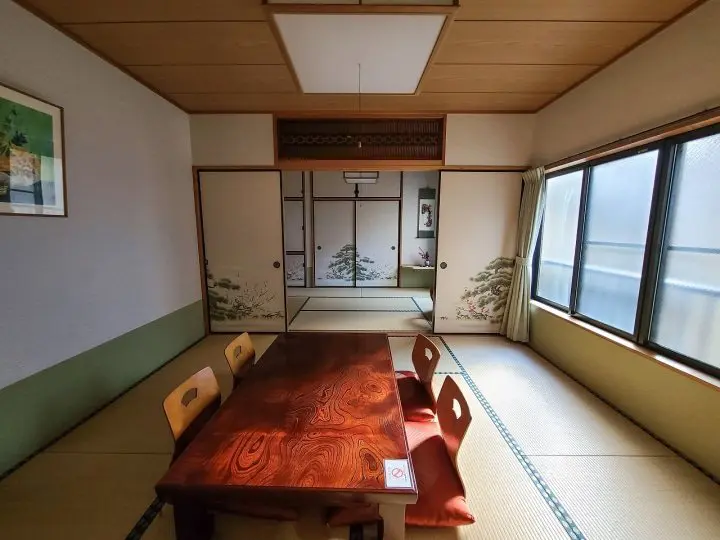
The largest room in the inn
The ryokan’s largest room is a 14-mat tatami room with its own private bath and toilet. The room is gorgeous, with detailed paintings on the fusuma (sliding doors) and intricate woodwork in the ranma transom above them.
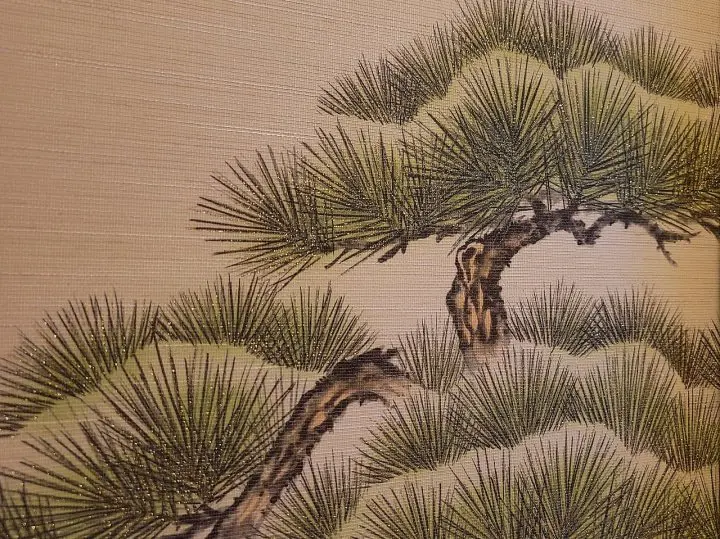
A closeup of the fusuma, tiny gold flakes add a sparkle to the painting
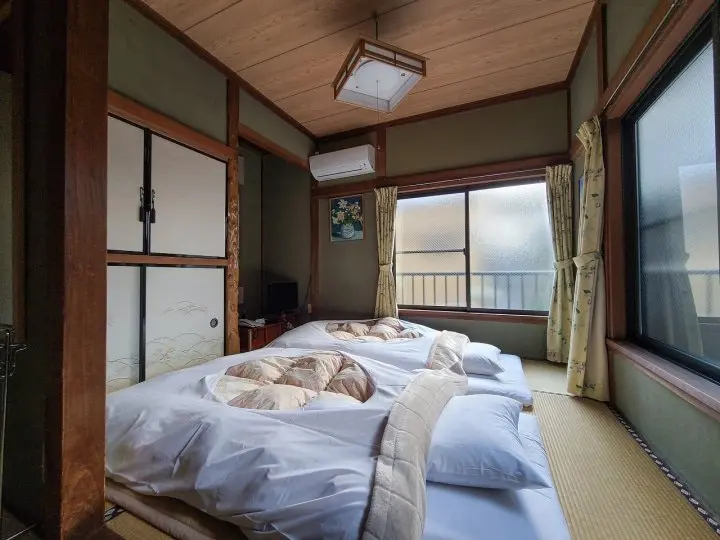
One of the regular rooms with its thick, comfy-looking futons laid out
The rest of the rooms are approximately half the size, 7.5 mats.
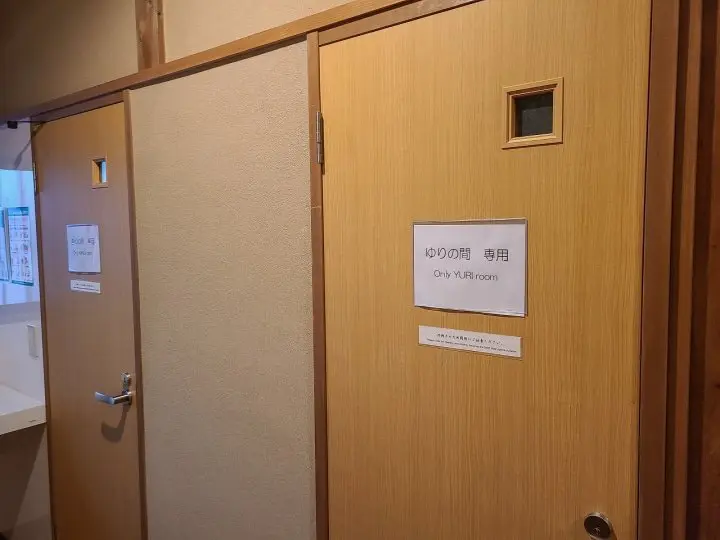
Each toilet is designated for each room

The shared sink space
While the bath and toilets for the other rooms are usually shared, the toilets are currently designated to their respective rooms as a countermeasure against the spread of COVID-19.
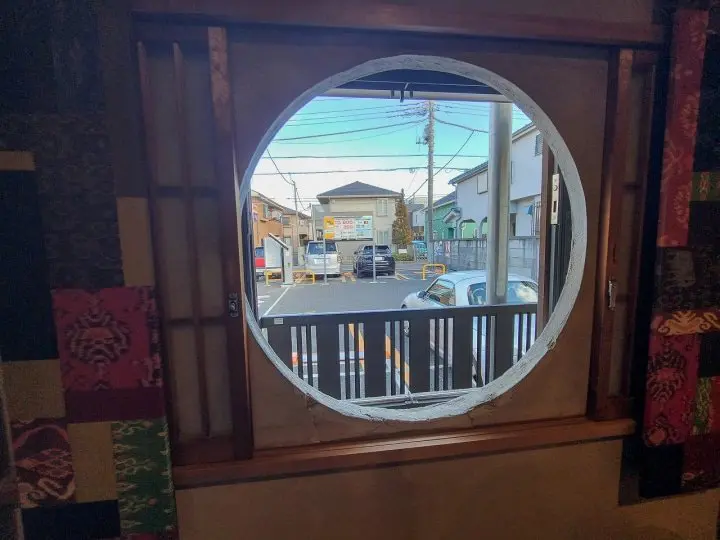
A round window still remains from the original ryokan building
Even though the ryokan has been renovated three times, the Shinmuras have tried to keep as much of the original as possible, evident in the presence of decadent wooden pillars next to the tokonoma alcove in each room and the original round window that remains in the hallway. The overall feel of the ryokan’s interior is very Showa-retro.

A large fan hangs in the staircase, and small antiques decorate the hall
While a simple stay is possible, guests can take advantage of plans that include breakfast and/or dinner. The breakfast is western-style and uses bread sourced from a local bakery. The dinner option offers a sushi meal, made specifically for the ryokan by a local sushi place. If sushi is not your cup of tea, the ryokan also has an agreement with a nearby izakaya restaurant that will serve a special dinner (the dinner is included in the dinner-plan room price, but drinks and food ordered outside the set menu are extra).
Shimura-san comments that probably the biggest feature of the ryokan is that he and his wife always try to make their guests feel relaxed and at home. While small children can sometimes be a problem if they make noise or cry in stricter ryokan environments, they are welcome with full understanding here.
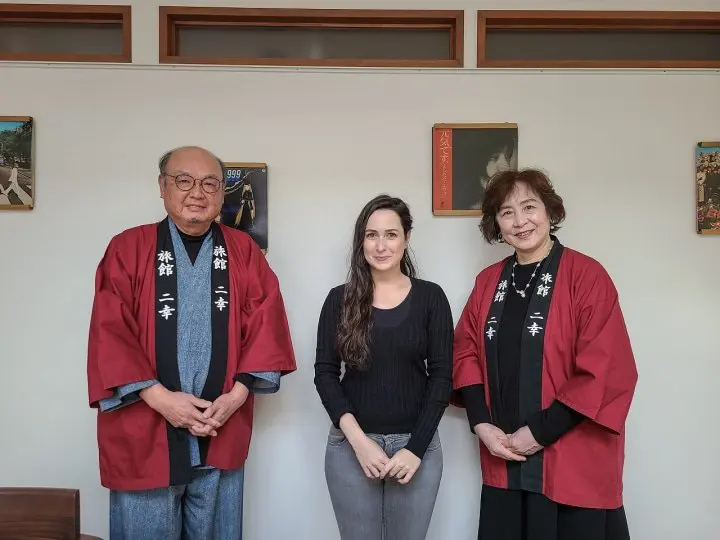
After spending some time with Shimura-san and Eiko-san at their ryokan, I wish I could stay longer. They tell me to come back and visit sometime, in the same way that relatives would.
If you’d like to get out of the city and explore the area to the west, come spend a few nights at Ryokan Niko. You might come away with a new aunt and uncle you never knew you had.
I am an actress and model living in Japan. Tokyo Ryokan Stories is my essay series about less-known but amazing ryokan and hotels in Tokyo.
































![[Kagoshima] Enjoy Minamisatsuma City to the Fullest! A Guide to the Scenic Beauty and Culture of Five Areas](https://resources.matcha-jp.com/resize/720x2000/2026/02/15-258755.webp)
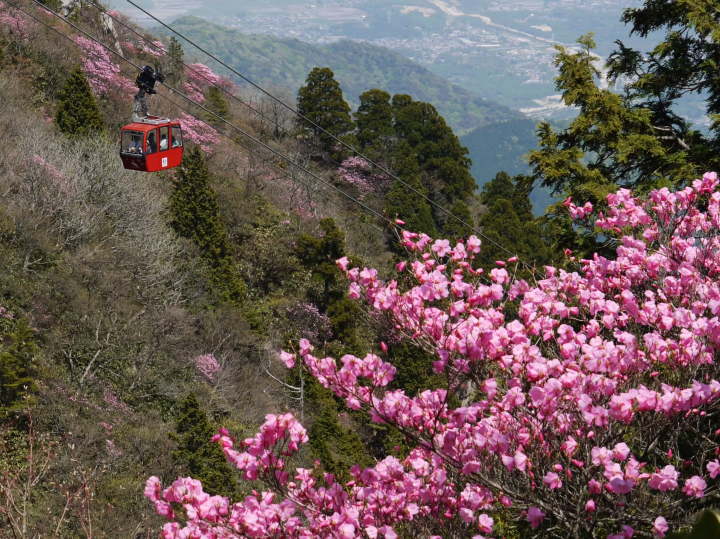
![[Yufuin]Yufuin in 100 Minutes: Quick Access Guide](https://resources.matcha-jp.com/resize/720x2000/2026/02/15-258738.webp)
![[Shinjuku Nishiguchi HALC] About the d Point Campaign](https://resources.matcha-jp.com/resize/720x2000/2026/02/14-258714.webp)
